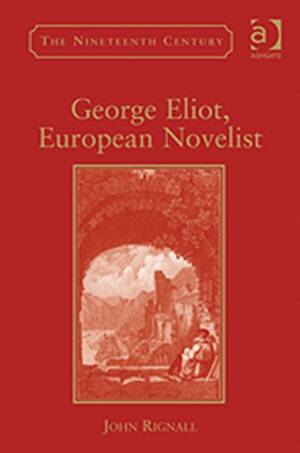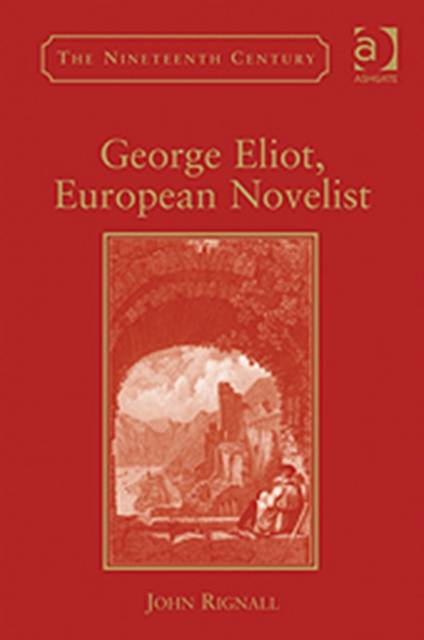
- Afhalen na 1 uur in een winkel met voorraad
- Gratis thuislevering in België vanaf € 30
- Ruim aanbod met 7 miljoen producten
- Afhalen na 1 uur in een winkel met voorraad
- Gratis thuislevering in België vanaf € 30
- Ruim aanbod met 7 miljoen producten
Zoeken
€ 202,95
+ 405 punten
Omschrijving
Reading George Eliot as a European novelist among other European novelists, John Rignall explores her use of European travel, scenes and locations in her fiction and also places her novels in conversation with the work of other major European writers. Throughout the book, Rignall shows Eliot's engagement with the cultures of France and Germany, suggestively making the case that Eliot's novels belong to the tradition of the European novel that descends from Cervantes. Rignall develops the fundamental theme of Eliot's position as a European novelist in chapters that explore the significance of Eliot's first visit to Germany with G. H. Lewes, Eliot's ideas on the cultural differences between French and German writing, the incidental part travel plays in novels such as Daniel Deronda and Middlemarch, the role of European landscapes in her fiction, the dialogical relationship between Eliot and Balzac, comparisons between Middlemarch and Flaubert's Madame Bovary, and connections between the novels of Eliot, Gottfried Keller and Theodor Fontane. Daniel Deronda is examined both within the wider context of European Jewish life and as part of a tradition of French novels that harkens back to Balzac and anticipates Proust. Rignall's final chapter takes up Nietzsche's notorious criticism of Eliot in Twilight of the Idols, showing that Eliot, with her sceptical intelligence, insight into the essentially metaphorical nature of language, and grasp of modernity, has something in common with this philosophical iconoclast.
Specificaties
Betrokkenen
- Auteur(s):
- Uitgeverij:
Inhoud
- Aantal bladzijden:
- 196
- Taal:
- Engels
- Reeks:
Eigenschappen
- Productcode (EAN):
- 9781409422341
- Verschijningsdatum:
- 28/07/2011
- Uitvoering:
- Hardcover
- Formaat:
- Genaaid
- Afmetingen:
- 156 mm x 233 mm
- Gewicht:
- 520 g

Alleen bij Standaard Boekhandel
+ 405 punten op je klantenkaart van Standaard Boekhandel
Beoordelingen
We publiceren alleen reviews die voldoen aan de voorwaarden voor reviews. Bekijk onze voorwaarden voor reviews.












